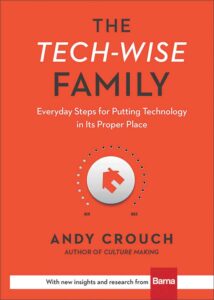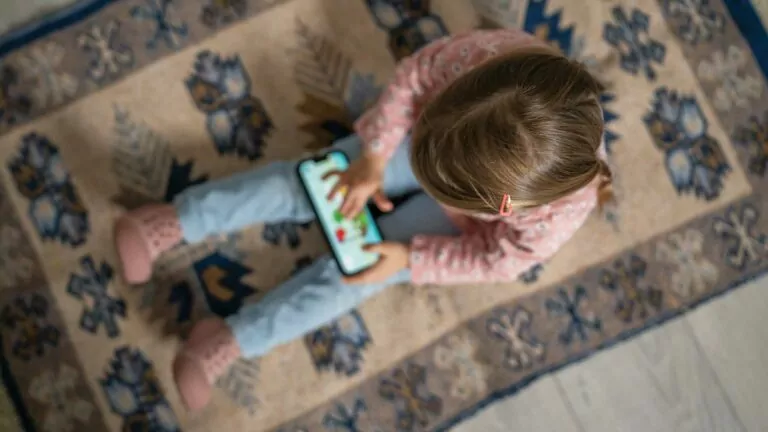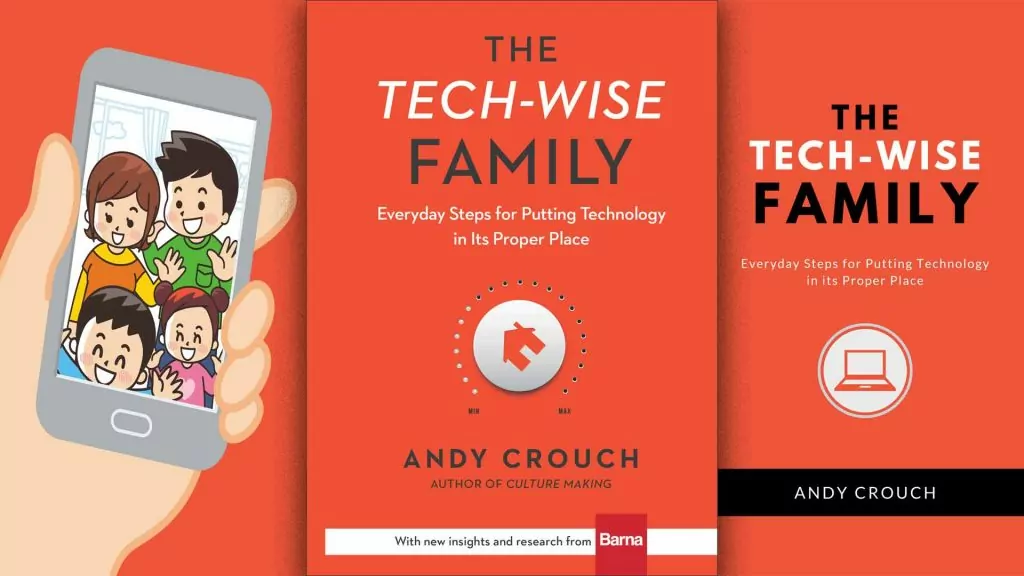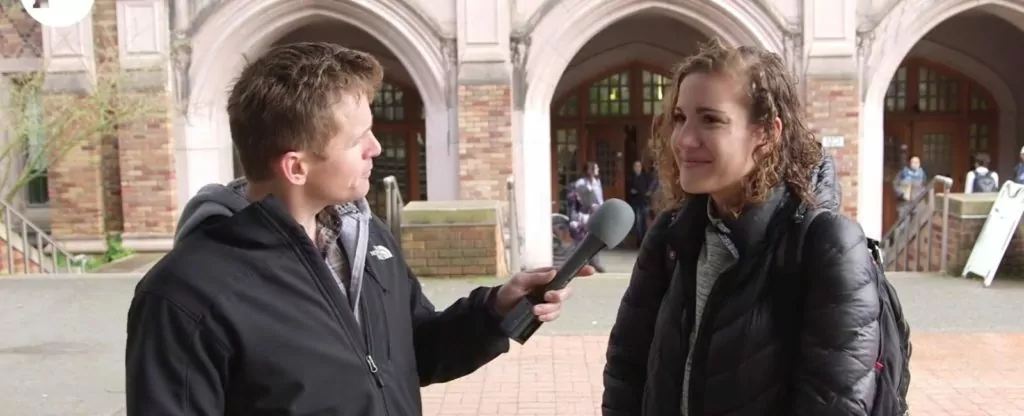I grew up in a home without a TV. But we did have a Commodore 64, a primitive computer (pre-Windows) that we used almost exclusively for games like Test Drive, Pac Man, and Ghost Busters. My smarter and older brothers were quick to figure out that if we added an antenna, the computer monitor could also be used as a TV. Before long, we were watching Hockey Night in Canada on Saturday evenings. And then we were also hooked on some of the shows that came right after the hockey game, like Dr. Quinn, Medicine Woman. We never watched all that much TV but somehow, without any big decisions being made by my parents, the home without a TV had become a home with a TV.
Similarly, I have been intentional about not getting onto social media. I have never signed up for a personal Facebook, Twitter, or Instagram account. But in the past 24 hours I have used Marketplace (a product of Facebook) to search for used bricks, Etsy to purchase plans to build a greenhouse, YouTube to figure out why our toilet isn’t working properly, Church Social to prepare for a care group gathering this weekend, and Spotify to listen to music while driving. And that doesn’t include the swath of online tools I use for work daily, like Google Suite, Slack, and Zoom. So, in spite of the line I drew to not get onto social media, by using all of these digital tools I’ve somehow signed up anyways.
A paradigm shift
How do we move forward in a world where screens and social media use is hardly an option, especially when they can also be so toxic? Similarly, what are we to think of new technologies like Artificial Intelligence (AI), which creep into our lives, whether we are aware of it or not?
 In preparation for this issue of the magazine, which dives into how technology is being used in Reformed schools as well as understanding AI, I went to the most prolific reader I know, RP’s Editor Jon Dykstra, asking him what is the best book I can read on the subject. He pointed me to The Tech-Wise Family, by Andy Crouch.
In preparation for this issue of the magazine, which dives into how technology is being used in Reformed schools as well as understanding AI, I went to the most prolific reader I know, RP’s Editor Jon Dykstra, asking him what is the best book I can read on the subject. He pointed me to The Tech-Wise Family, by Andy Crouch.
I wasn’t disappointed.
Crouch brought practical and biblical clarity to these questions and more. But his book did more than that. It gave me a paradigm shift for how I was looking at the whole topic of technology in our lives.
Allowable may not be helpful (1 Cor. 6:12)
If we focus simply on whether something should be allowed, we often miss the point. It may have been possible to keep TV’s out the home before, but it is much more difficult to not allow screens today. Many Reformed churches which once discouraged TV’s now welcome screens in church and at home as gifts from the Lord.
Andy Crouch offers a more helpful approach – putting technology in its proper place so that the things that should be our priorities, like family, friends, and faith, remain priorities.
In a broken and depraved world, we so easily go from owning possessions like a phone, tablet, or gaming console, to being possessed by them. For example, sociologist Jean Twenge has shown that teen mental health has plunged since 2012, the year that a majority of Americans owned smartphones. And many senior readers, if they are honest, will acknowledge that their screen use has long crossed into the territory of becoming an addiction
What does helpful look like?
Putting technology in is proper place requires discernment, something that is more difficult than rules. According to Crouch, technology is in its proper place when:
- It helps us bond with the real people we have been given to love.
- It starts great conversations.
- It helps us take care of the fragile bodies that we inhabit.
- It helps us acquire skill and mastery of domains that are the glory of human culture (sports, music, the arts, cooking, writing, accounting, etc.).
- It helps us cultivate awe for the created world we are part of and responsible for stewarding.
- We use it with intention and care.
On the last point, he adds:
“If there’s one thing I’ve discovered about technology, it’s that it doesn’t stay in its proper place on its own; much like my children’s toys and stuffed creatures and minor treasures, it finds its way underfoot all over the house and all over our lives.”
Take a moment to reflect on the technology use in your home and life. How does it align with the criteria above? Let’s also do this reflecting humbly, recognizing that the ultimate judge is not ourselves (we are very quick to justify what we like) but our God, who calls us to be faithful stewards of our time and gives us a high calling as a prophet, priest, and king (Lord’s Day 12, Heidelberg Catechism).
Tech-Wise changed my thinking
If you or your family struggles with managing technology, I highly recommend you pick up a copy of Crouch’s book, as he shares practical advice about how to prioritize character, shape our spaces with intentionality, structure our time, and apply all of this in the details of life, from our commutes in our vehicles to how we sleep.
This was a paradigm shift for how I was looking at things like social media, including whether media organizations like RP should utilize platforms like Instagram when these mediums cause so many problems for their users. It has made me realize that I was being naïve, and even hypocritical, if I thought we were even able to “flick the switch” on social media. After all, a good case could be made that even apart from our Instagram and Facebook pages, RP’s online presence (complete with a popular app, videos, website, podcasts, and newsletter) could also qualify as social media.
But it has also served to strengthen my appreciation for our board’s decision to prioritize this print magazine and our Real Talk podcast, over social media and video.
Unplugged is different
Since most members of the Canadian NAPARC churches also receive the magazine, we are able to bond, and sharpen each other, about what we find in these pages. For example, my church’s Young Peoples Society picks an article from it at each meeting for their discussions (checking off the first two criteria from Crouch already). This simply isn’t possible if each church member is plugged into their own source of information, oblivious to what others are reading or watching.
A print magazine in particular engages not just our hearts and minds, but also our bodies (we have to pick it up, hold it, gaze at it, flip the pages). Our heart rate slows as we settle into a comfortable position and slowly work through the issue. RP’s team has also been intentional about trying to make the reading experience delightful, with nicely designed pages, space for large pictures, a captivating kids’ section and new sections like the artist profile. Our senses and hearts need to be fed along with our minds.
Our hope is that this magazine, and to varying degrees all of RP’s resources, will strengthen your relationships with your brothers and sisters in Christ, will be used to start great conversations, will help you take care of your bodies and souls, and will develop awe for God’s creation.
But reading this is a small part of your life. So do take more than a moment to consider how the other sources of technology in your home and life measure up to Crouch’s criteria. If you have someone else around you, consider reading Crouch’s criteria about whether technology is in its proper place and ask them for their thoughts, perhaps even about how you are managing technology. And if your device happens to ping while you are enjoying a conversation with them, ignore it!












